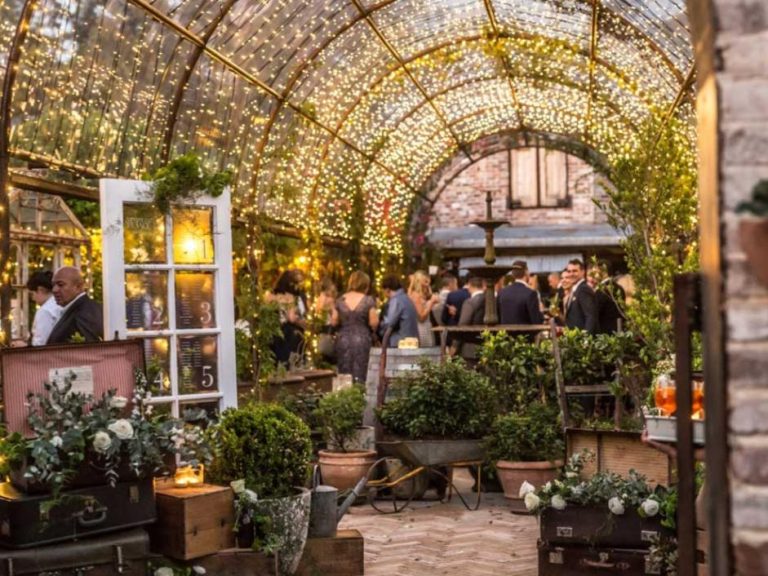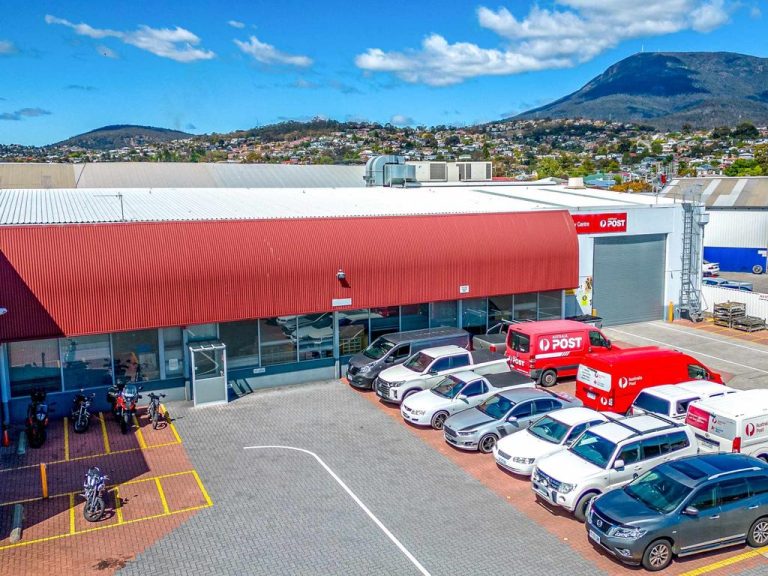The working-from-home debate: Measures companies are taking to entice staff back to the office

In an effort to curb the ‘work from home’ trend that is now embedded in professional life, businesses are taking various approaches to getting staff back into the office.
Hard-line measures range from mandating minimum office days to linking bonus entitlements to in-person attendance, but some businesses are getting creative in an attempt to entice staff rather than force them.
With workers now accustomed to a living-room-to-study commute since the pandemic, an occasional free lunch and a ping pong table session is unlikely to be enough.
“We’ve reached a point now where businesses recognise that in order to get their employees back in the office, they need to offer more than just a place to sit and work and a complimentary fruit bowl,” PropTrack economist Anne Flaherty said.
“A white-collar worker can now easily sit at home and do their job, which means office spaces have had to evolve.”
Desirable digs
One attempt has been to make the office ‘Instagrammable’.
As reported in the New York Times recently, cereal company Magic Spoon has attempted to woo workers back to the office by offering trendy, hyper-colour work spaces designed for Instagram-worthy snaps.
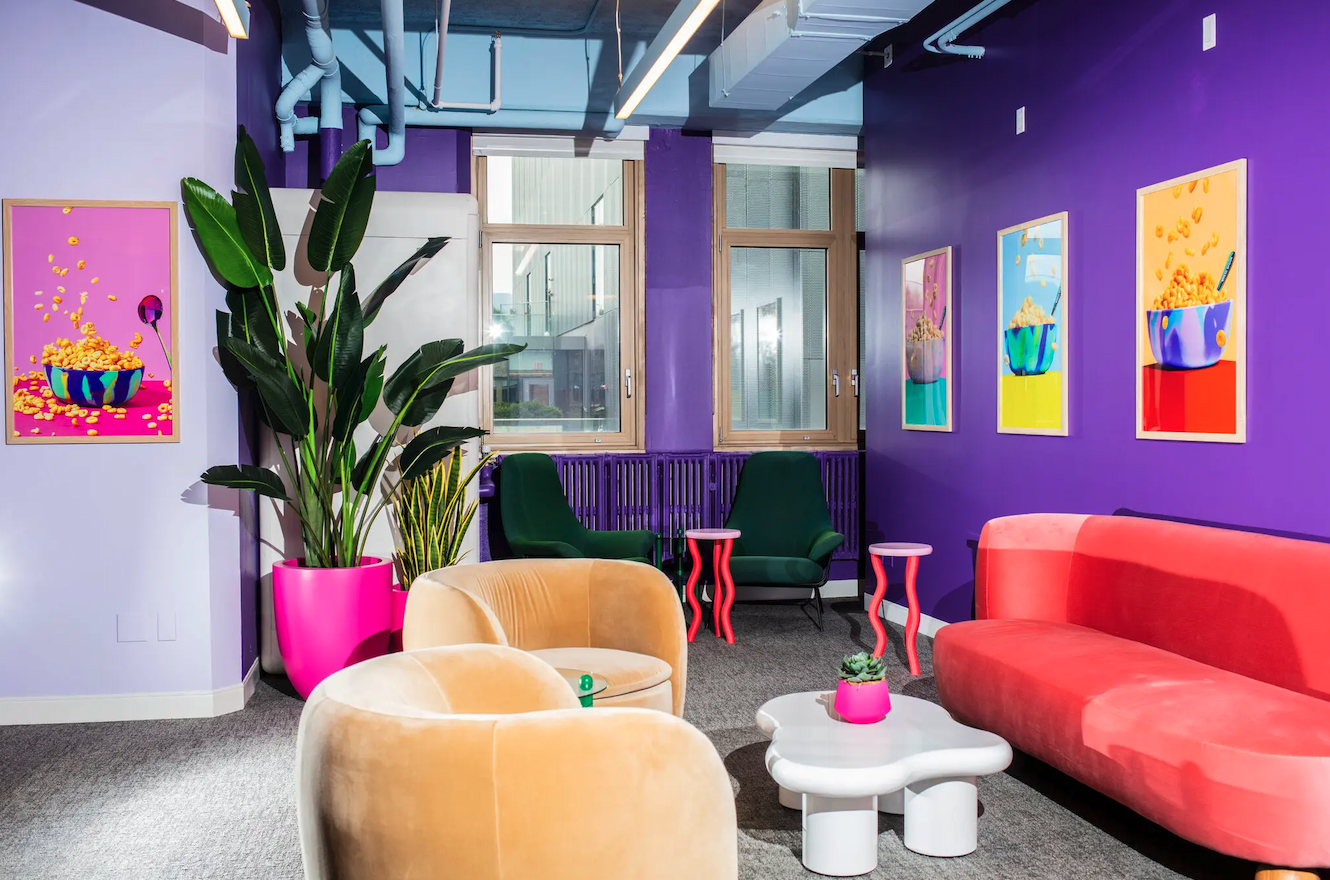
Could an Instagrammable office entice more workers back in? Cereal brand Magic Spoon is trying it. Picture: New York Times
While their ‘blueberry muffin’ conference room and pineapple-printed vintage chairs might be a tad over-the-top, Ms Flaherty said a cool office design is actually more important than ever.
“With office vacancy rates – particularly in Melbourne and Sydney – climbing steadily since the beginning of 2020, companies now have a lot more choice in where they can rent,” she said.
“There are some very attractive lease terms out there, so what we’re seeing is a flight to quality, with businesses leaving secondary grade offices in favour of more stylish and comfortable spaces.”
Since its completion in 2022, Sydney’s Salesforce Tower – now officially the city’s tallest office building – has attracted innovative organisations like Tik Tok and WeWork by providing premium offices complete with high tech amenities and spectacular views.
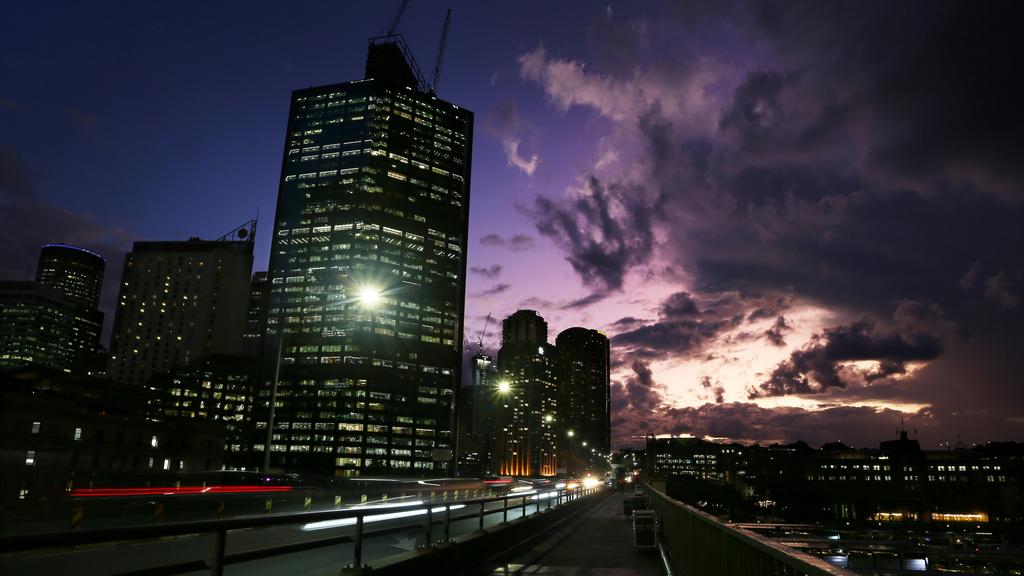
Higher vacancy rates are giving tenants greater choice to upgrade to premium offices. Picture: Getty
“Many of these kinds of companies know it’s worth paying for better quality spaces,” explained Ms Flaherty, “because it’s much easier to get their workers back into the office if the office itself is a desirable place to be.”
As part of the wider Sydney Place complex, Salesforce Tower workers also enjoy access to bars, dining, retail, and luxe end-of-trip facilities that include Australia’s largest bicycle hub.
“Anything that can be done to make the office experience more integrated into a person’s lifestyle is going to be helpful in drawing people back,” added Ms Flaherty.
Dog days
According to a 2022 study by Lonergan Research, nearly one in four Australians (23%) welcomed a new dog during the pandemic.
In the same study, 71% of dog owners said they would love to be able to take their pup to work, while 53% admitted to feeling anxious when they leave their dog at home alone.
This uptrend and changing nature of pet ownership hasn’t gone unnoticed.
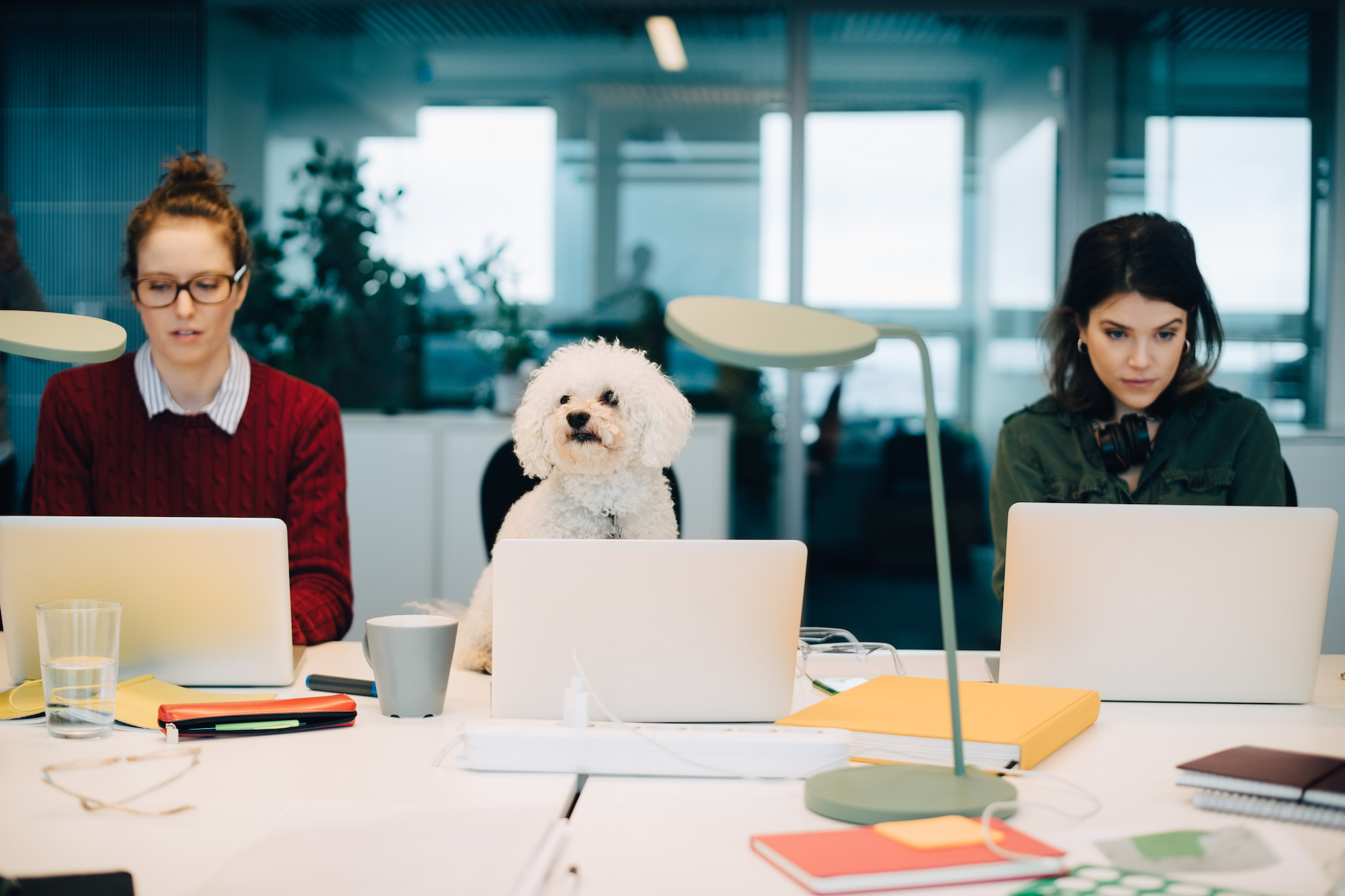
Nearly one in four Australians welcomed a new dog during the pandemic. Picture: Getty
Six months ago, sporting goods company Decathlon introduced a ‘dog days’ initiative to its Tempe office, which brand manager Erin Eedy noted as a “huge driver” in attracting staff back to the office.
“Because we have a hybrid working model, you don’t often see certain colleagues if your days don’t overlap,” Ms Eedy explained. “Our dog days give people something to look forward to because they know more people will be in the office and they’ll also get to see their favourite pup.”
“Our doggy calendar also ensures the office isn’t overrun with dogs in one day!”
Amazon has undertaken a similar bring-your-dog-to-work-day concept, with the tech giant introducing its Dogs at Work program to Australia in May 2022.
As part of the initiative, each dog is given a ‘Wolf Pack’ to welcome them to the team, which features a bowl, collar pendant, map of friendly spaces and access to regularly refilled snacks.
Earlier this year the company furthered the program, opening a dog playground in their Sydney office to provide a dedicated space for office dogs.
Georgia Mitchell, Senior Manager of Workplace Experience in Asia Pacific, called the program a “massive hit.”
“We’ve been thrilled to see our team embrace this new perk – both the ones with dogs and the ones who don’t have one, but wish they did,” Ms Mitchell said.
“Dogs add to our dynamic and collaborative workplace and we’ve found they are a good mechanism for connection,” she added. “It’s great to walk through the office, give the dogs a pat and have a chat with people you might not otherwise speak to regularly.”
Electric car share
Office landlords are also helping tenants make workplaces more enticing for staff by investing in premium services for their buildings.
In August, tech transport start-up Outbound launched the ‘Electric Car Club’ – a shared electric vehicle scheme providing Melbourne co-working spaces CreativeCubes.Co and the Salesforce Tower in Sydney with communal Teslas, which staff can borrow or rent via an Uber-like app.
The scheme allows workers to travel to client meetings, attend site visits or run personal errands in premium, low emission cars.
“It’s a little bit like Uber, except you do the driving,” said Outbound CEO Luke Rust. “Plus they’re Teslas, and who doesn’t love driving them?”
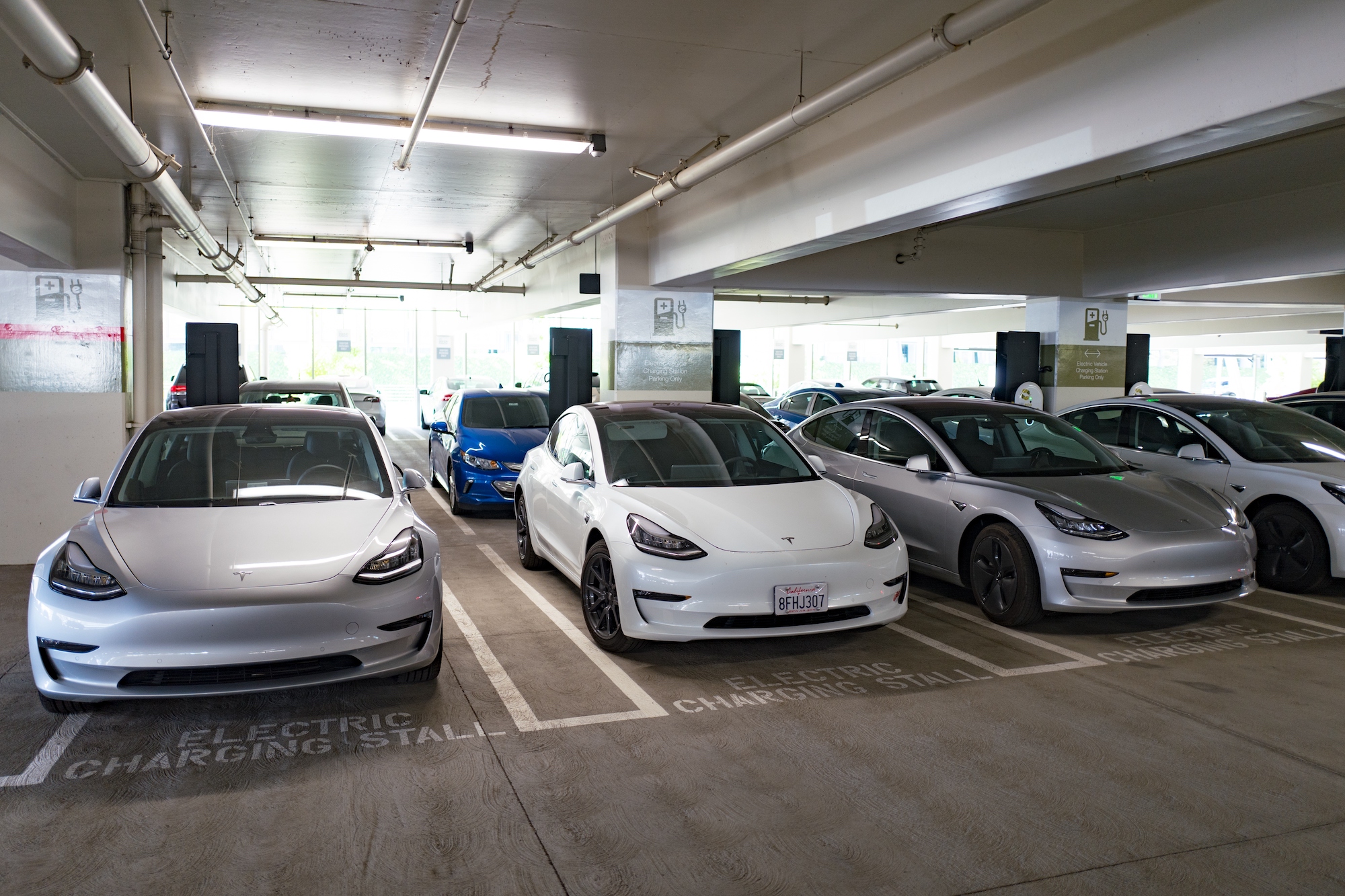
Some workplaces are offering communal Teslas, which staff can borrow or rent via an Uber-like app. Picture: Getty
Mr Rust said the service is all about being able to support the wider lifestyle of professionals existing in a new work era.
“People are hiring the Teslas mainly from Tuesdays to Thursdays, but what we’ve also found is that instead of working from home on a Friday, they’re coming into the office to work for the day and then grabbing a car and taking it away for the weekend.”
The Electric Car Club is currently being enjoyed by companies as diverse as Tourism Australia, Lendlease and Zip Co in Sydney, to fashion retailer Lululemon in Melbourne.
The initiative has also earmarked for Addenbrooke’s $400-million Merchant House commercial redevelopment on Sydney’s Kent Street when it is completed in 2024.

